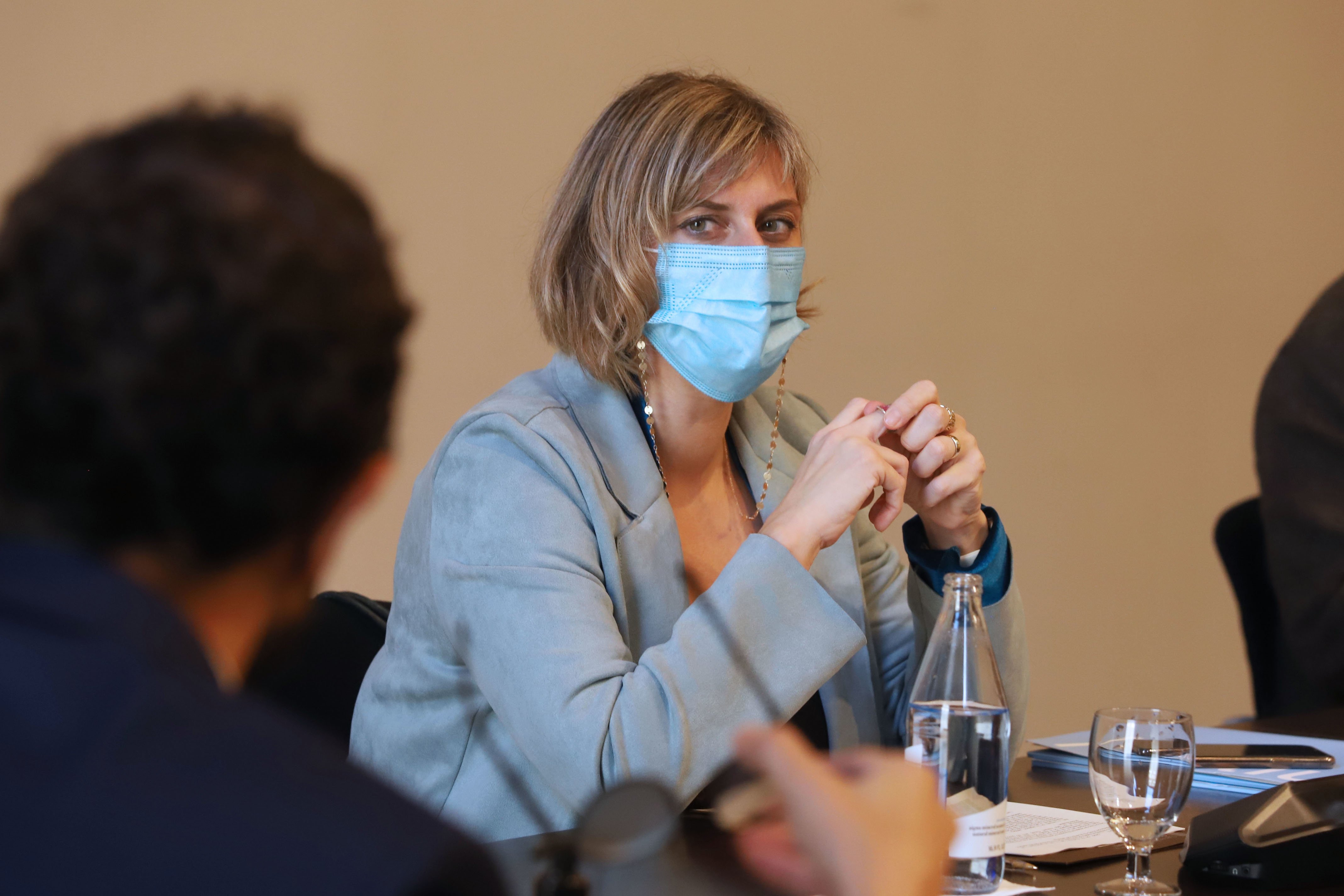Catalan health minister Alba Vergés warns that an easing of current coronavirus measures is still far away in Catalonia. A de-escalation is the intention, but, as members of the Catalan government have already stated, it will not be the same as in May and June. Moreover, with Catalonia in the midst of the second wave of the virus, she warns of what might lie ahead: "A third wave could happen, winter is coming and thus the possibility is strong." And the current moment is also very critical: "We have not yet reached the peak of health care occupancy in the current wave, the number of admissions continues to grow." While the rate of increase in some indicators is slowing down, the absolute levels in Catalonia are still high - giving the example of new cases, which have just registered a figure of almost 4,000 in a day.
At Monday afternoon's press conference, the figure highlighted by the Catalan government was that of hospital admissions, the reality of the health care system. New positive cases are down but the most important thing, she said, is to prevent the system from being overwhelmed. "There is a delay effect, and the figures are still rising, with 578 in intensive care beds," said Vergés. In addition, seven nursing homes have been subject to health department intervention in recent weeks due to the lack of professionals, who have also become victims of Covid-19. Due to all this, she called on the public to avoid doing "anything that is not indispensable."
The Sagrada Família ceremony
The health minister did not hesitate to express her indignation at the image given this Saturday by the special mass in Barcelona's Sagrada Família, attended by over 600 people - precisely, she said, because it could have been avoided. She compared it to other religious ceremonies that the pandemic had previously made impossible and which, by contrast, were much more painful to do without: "It is exasperating when you look at the restrictions that are imposed in the country, with people unable to go to work, and in the realm of the spiritual, people being unable to say goodbye to their loved ones." Alba Vergés also stated that her department had no advance warning or "knowledge of this event."
Small gesture for restaurants
In parallel, interior minister Miquel Sàmper confirmed the extension of the curfew in Catalonia but also made a small change with regard to the restaurant and bar sector. Takeaway food, the only business possibility currently available for hospitality sector establishments, can now be picked up until 10pm, an extra hour on top of the 9pm limit in force up till now. People who are thus unable to be back home by the 10pm curfew hour, can use their purchase receipt as justification. Nevertheless, Samper requested the public to handle such purchases efficiently and not to take advantage of the measure. The minister added that he believes the measures are working and expects "sustained falls soon" in coronavirus indicators. He also mentioned that increases in traffic levels on Thursdays had been recorded, with 7% more cars passing through motorway toll booths in the metropolitan area, in response to the weekend ban on leaving one's municipality - which comes into force every Friday morning from 6am.
Following the paint-bombing incident that affected the Catalan government headquarters, the Palau de la Generalitat, on Sunday, the minister said that Mossos police security for the building will now apply seven days a week, 24 hours a day. Security would also be reinforced in departments most exposed to Covid in a media sense, and for events that require it, said Sàmper, but the Catalan government explains actions like yesterday's as the result of "a crisis which has not been stabilized". Protesters who took part in the incident said the action was a response to the closure of bars and restaurants; the association representing restaurant businesses strongly rejected the attack.

